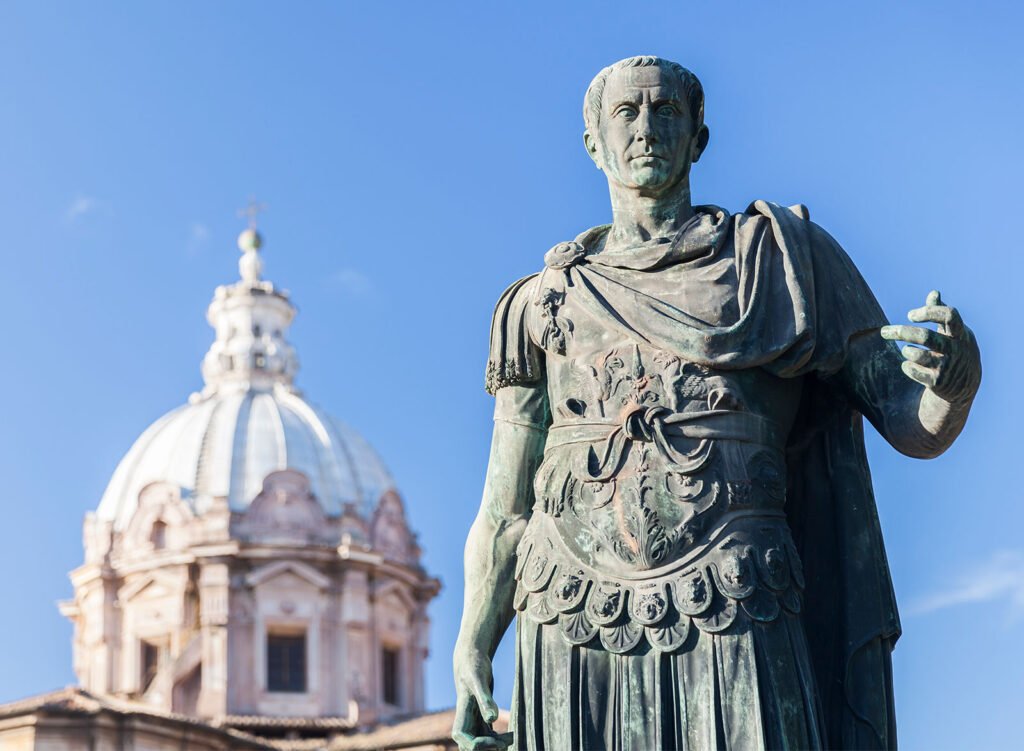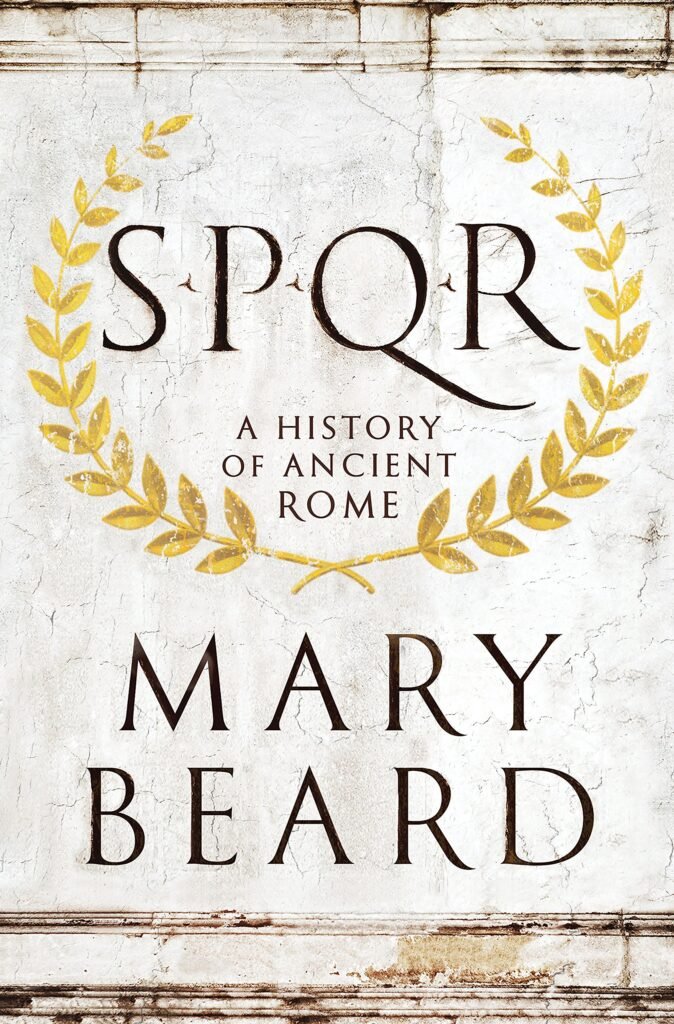by Public Service Associate Autumn

Or maybe all roads just lead to Roman troubles. A large swath of problems facing the United States today, also faced the Romans at some point during their thousand years of civilization. Climate change made growing food and combating disease harder. People everywhere were divided on how to live and who to believe. Countries invaded their neighbors. Money swayed politics. Violence broke out in the streets. Swelling inequality made living harder and bred distrust in political systems. People scrabbled to reach the top or to just support themselves in an ever shifting world. So today, on the anniversary of the assassination of Julius Caesar and the change it ultimately sparked in Rome’s government, take a break from the turbulence of today and dive into the machinations and turmoil of Rome. Learn how the Romans handled, or ignored, their problems or just enjoy reading about problems that are already solved by checking out some of the following books.
Fiction Books:
- I, Claudius by Robert Graves | print / digital
- A classic novel of Roman politics, I, Claudius explores the crippled Claudius’ survival of three emperors’ reigns and his surprising ascension to power.
- The Cicero Trilogy by Robert Harris | print
- Starting with Imperium, this trilogy is told by Cicero’s enslaved secretary, Tiro, and “lures [readers] into a violent, treacherous world of Roman politics at once exotically different from and startlingly similar to our own.” [Publisher’s description]
- The First Man in Rome By Colleen McCullough | print / digital
- “Deftly weav[ing] politics, family rivalries, and battle scenes into a riveting story replete with fascinating details of everyday Roman life, [the Library Journal]” this novel describes the contest between Gaius Marius and Lucius Sulla to become the first man in Roman politics, with bloody results.
- Roman Blood by Steven Saylor | print / digital
- This sixteen book series, beginning with Roman Blood, follows Gordianus the Finder, who, in the process of just trying to make a living, finds himself and his skills thrust into a conspiracy, murder and the general backstabbing of Roman Politics. In the first novel, Gordianus is hired by Cicero to find evidence in a murder investigation, on that takes Gordianus from the senate halls to the slums of the city.
Non-Fiction Books:
- SPQR by Mary Beard | print / digital
- A sweeping, “magisterial” history of the Roman Empire from one of our foremost classicists shows why Rome remains “relevant to people many centuries later” (Atlantic). [Publisher’s description]
- Crossing the Rubicon by Luca Fezzi | print
- When the Senate ordered Julius Caesar, conqueror of Gaul, to disband his troops, he instead marched his soldiers across the Rubicon River, in violation of Roman law. The Senate turned to its proconsul, Pompey the Great, for help. But Pompey’s response was unexpected: he commanded magistrates and senators to abandon Rome—a city that, until then, had always been defended. The consequences were the ultimate crisis of the Roman Republic and the rise of Caesar’s autocracy. In this new history, Luca Fezzi argues that Pompey’s actions sealed the Republic’s fate. [Publisher’s description]
- Fate of Rome by Kyle Harper | print
- Here is the monumental retelling of one of the most consequential chapters of human history: the fall of the Roman Empire. The Fate of Rome is the first book to examine the catastrophic role that climate change and infectious diseases played in the collapse of Rome’s power―a story of nature’s triumph over human ambition. Interweaving a grand historical narrative with cutting-edge climate science and genetic discoveries, Kyle Harper traces how the fate of Rome was decided not just by emperors, soldiers, and barbarians but also by volcanic eruptions, solar cycles, climate instability, and devastating viruses and bacteria. [Publisher’s description]
- Caesars’ Wives by Annelise Freisenbruch | print
- In scandals and power struggles obscured by time and legend, the wives, mistresses, mothers, sisters, and daughters of the Caesars have been popularly characterized as heartless murderers, shameless adulteresses, and conniving politicians in the high dramas of the Roman court. Yet little has been known about who they really were and their true roles in the history-making schemes of imperial Rome’s ruling Caesars–indeed, how they figured in the rise, decline, and fall of the empire. Now, in Caesars’ Wives: Sex, Power, and Politics in the Roman Empire, Annelise Freisenbruch pulls back the veil on these fascinating women in Rome’s power circles, giving them the chance to speak for themselves for the first time. [Publisher’s description]







